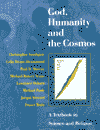Ethical Concerns Raised by Genetic ReductionismThe massive Human Genome Project to map every human chromosome will shortly be completed, a great advance in our knowledge. But it carries with it the danger that we may oversimplify our view of the human being. A one-dimensional string of code is a long way from a complete account of a person. The most obvious problems raised are: a) those within the insurance industry, since knowledge of a person’s DNA could lead to predictions as to what illness they might have in twenty years’ time, irrespective of the character of the person or the nature of their lifestyle b) the
temptation to suppose one could necessarily produce a ‘better’ human being by
altering the genes of an embryo and implanting it into a mother (currently a
prohibited practice in the UK and US) - thus altering forever the genetic
inheritance of that person. As Ian Barbour points out, ‘Some of the indirect
consequences of (such) intervention might be harmful, delayed and
irreversible.’
Email
link | Feedback | Contributed by: Dr.
Christopher Southgate |




